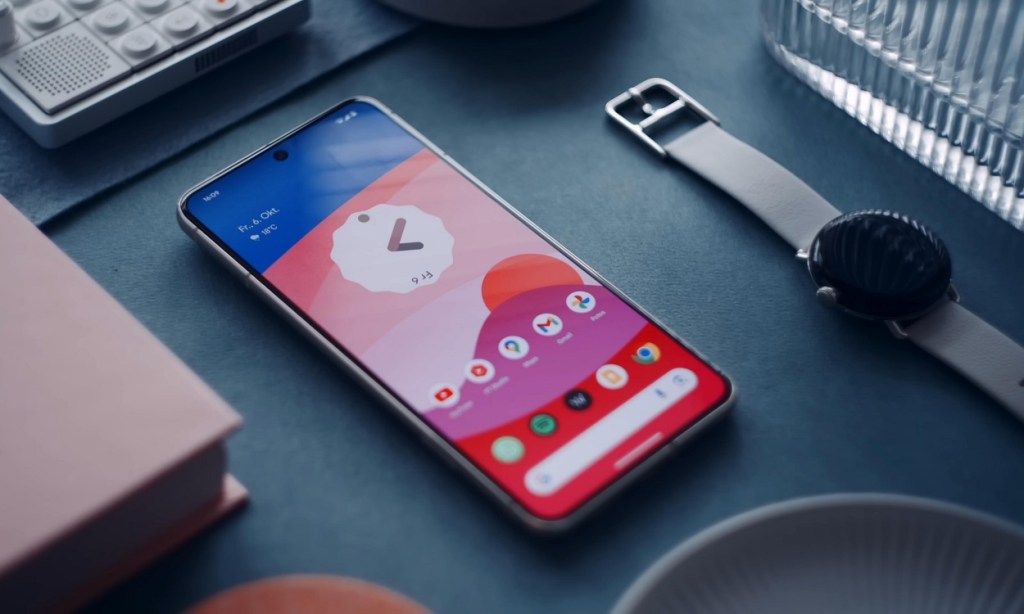- Google is merging its Products and Services and Platform and ecosystem teams to form the "Platform and Devices" team.
- CEO Sundar Pichai says this will help deliver better products for users and partners.
- We think this will lead to faster updates, new AI features, improvements to existing AI features, and better ecosystem features
Android’s growth over the last few years has been exceptional, and not just Google, but popular manufacturers like Samsung have immensely benefited from the new developments. IDC researchers predict that Android will grow at twice the pace of iOS. It seems like Google’s on the right trajectory with Android. And its latest decision to merge AI and Hardware teams should ensure they stay steadfast on the same. For those wondering, here’s what this Google AI-Hardware merger could mean for Android.
Faster Android Updates
Alphabet CEO Sundar Pichai’s announcement that Google is combining its Products and Services and Platform and ecosystem teams into the “Platform and Devices” team could mean that future Android updates will arrive faster.

The fact that the hardware team and software team have merged implies that the collaboration will hopefully be much more seamless with diminished communication overhead. This would not only allow the Platform and Devices team to push faster but also feature-rich updates.
The areas where I expect massive improvements moving forward are firstly and obviously, new and improved AI capabilities. This, followed by ironing the irregularities in the current Android ecosystem which we believe is fractured.
Google AI Hardware Merger: Better Ecosystem Features
Google has made great strides in improving the Android ecosystem, but we can agree that it’s pretty tardy so far. The merger might solve this, and we could see new ecosystem features that can rival the best of the best. Does this mean Android’s ecosystem problem is going away soon?

No, we don’t think it’s going away soon. BUT! We believe this merger could help “Android partners” as Google calls them. And, their thoughts reach more ears and potentially work together to ensure some exclusive features arrive sooner on their devices.
Don’t get us wrong, the merger won’t solve the saturated Android market and magically enable different ecosystem features to work across manufacturers and their devices seamlessly, but it should help reduce the gap. A good example is Samsung’s partnership with Google and the Android team to get Circle to Search on Galaxy devices.
Google Merger: Deeper, Efficient AI Integration
The move toward the merger makes me believe that a major reason is for the things yet to come. The Pixel brand is growing, and the recent Pixel 9 leaks tell us that Google’s getting pretty serious about it. We know that Google’s first fully custom Tensor SoC manufactured with TSMC will arrive in the Pixel 10 series. And since we’re less than a couple of years away from the same, this would be the right time to combine and start developing deeper and more efficient AI integrations.

I’m calling it now. The Tensor G5 (or whatever they decide to call it) could have an industry-leading NPU for AI-related tasks. Google merging both teams could lead to expansive AI development for Pixels. And we could see more on-device generative AI feature development gaining pace.
Improvements to Existing AI Features
Since Google hopped onto the Generative AI train for Pixels, there’s been a growing trend of features arriving a little too late. That might be because they weren’t being finalized as quickly due to the communication overhead. Also, I feel like, in terms of raw AI features, the pace at which they’re being released to devices has been mighty slow.

For example, months after the release of Google Gemini on Android devices, it’s still unclear if it will be coming to ChromeOS, WearOS, or other platforms. I think that will be fixed sooner or later with this merger. The bottom line is, that decision-making could be a tad bit faster, and so will be the pace at which features are released.
Faster Features Seeding on Partner Devices
Android’s hardware and software team working closely could also ramp up the pace at which Android partners receive new Android features. Now, I know that it mostly depends on the willingness of brands to collaborate with Google. But we’ve seen Samsung collaborate with Google on multiple occasions; the recent collaboration was with OPPO and OnePlus to bring AI features to more devices.

Pixel-exclusive features will remain, well, Pixel-exclusive, unless Google decides otherwise. But we could see a significant boost in the arrival of features on non-Pixel devices too!
Google’s Team Merger: A Few Reservations
And, of course, the situation is not all roses here and I have a few reservations. Rick Osterloh will lead the newly merged Platforms and Devices team. He formerly led the Nest and Fitbit teams, and so far both platforms have been quite disappointing, to say the least.
Besides, I still feel Google doesn’t take user feedback seriously, and having a bigger team will only make future feedback get lost in the echo. Google has already been killing its new and old services left and right. And users are at a point where they cannot trust the decisions and get slightly less excited about features. What are your thoughts about the new merger? Let us know in the comments below.






